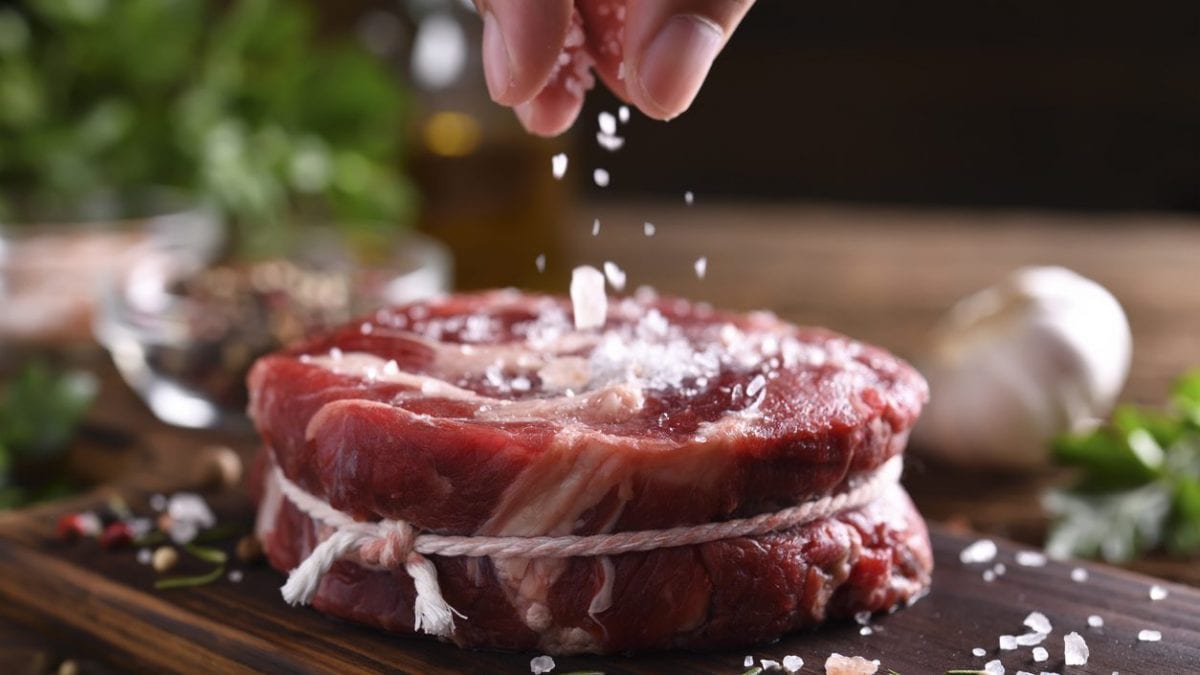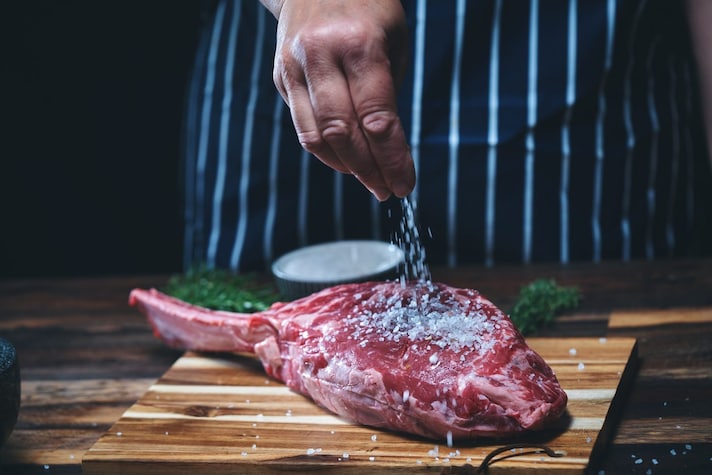
Let's start with a premise: the answer to this question isn't clear-cut, as there are multiple schools of thought on the matter and, above all, there are different types and cuts of meat that, depending on their characteristics, can benefit from different treatments. What is certain is that salt, once added to meat, not only enhances the flavors (as happens with all foods), but also causes chemical reactions that both dry it out and tenderize it. In this second case, adding salt before cooking could be beneficial for your steak. Let's see what this means.
Why Is It Better to Salt Before Cooking?
We can say that the belief that salt “dries out” meat stems from a real phenomenon: salt attracts water. It is true, in fact, that sodium, once in contact with muscle fibers, tends to draw liquids to the surface and dehydrate the tissues, removing humidity: it is no coincidence that it has been used since ancient times as a method of preservation or, even today, to make, for example, hams. However, the process is more complex than that.
If you leave salt on a steak for an adequate amount of time, a positive effect occurs: it causes a slight degradation of the protein, with the fibers absorbing the released juices, making the meat tender and succulent, as the latter will be retained inside during cooking.
The general advice, therefore, when adding salt first, is to do so well in advance, at least 60-40 minutes before cooking, so as to allow the two processes described above to take place: initially, the juices are extracted and then reabsorbed. Conversely, adding salt 15 or 10 minutes before cooking can result in a drier final product.

Among lovers of grilling and barbecues (including home-made ones), a well-known technique is dry brining: in a nutshell, it involves dry salting the meat a few hours before cooking, which gives it greater moisture and juiciness.
What type of salt should you use? Fleur de sel is a less refined choice than regular salt, with a flaky or flaky texture. It absorbs more slowly (but incorporates better than coarse salt), requires less than regular fine salt, and provides a more delicate flavor.
Salting meat during cooking, however, is not ideal: the risk is that the crystals remain on the surface, often in an uneven way, giving excessive saltiness on the outside and absent on the inside.
Do it later? If you're unsure, a good solution is to opt for a flaked salt, such as Maldon, a variety of sea salt used as a finishing touch, just before serving, much appreciated for its fresh, crunchy note.
;Resize,width=767;)
